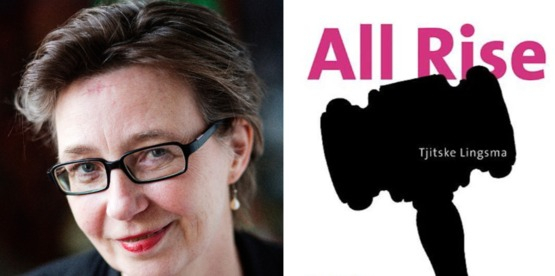Tjitske Lingsma on her book All Rise!
What are the biggest challenges facing the ICC?
The task of the court is to prosecute individual perpetrators of international crimes (genocide, crimes against humanity and war crimes). The ICC has been struggling with problems such as government obstruction, witnesses being threatened and bribed, its own investigative failures and the balance in prosecutions. The court faces an increasing problem with its image.
Some African countries want to leave the ICC. Why?
Last October three governments announced their departure. South Africa was involved in a huge row with the ICC for not arresting the fugitive president of Sudan, who was indicted for genocide in Darfur. Gambia called the ICC a “Western instrument.” Burundi acted out of self-interest. By withdrawing, such a government tries to prevent that authorities might be officially investigated by the ICC.
What should happen to keep them on board?
When the newly elected president came to power in Gambia he said the withdrawal was off the table. Crucial in the South African case was that that the country’s High Court blocked the decision to pull out ruling that the government had acted in a way that was unconstitutional. Pretoria revoked its withdrawal, at least for the time being. Burundi seems the only country that goes ahead with its plans to leave.
Many Africans criticize the ICC for being a Western vehicle. Do you agree?
In half of the conflict situations where ICC’s prosecution is investigating, African governments themselves asked the court to become active: Uganda, Democratic Republic of Congo, Central African Republic (twice) and Mali.
What should happen to get the non-signatories on board?
The ICC has 124 member states. Big powers such as the USA, China, India and Russia are absent. With the current international climate it is unlikely many new members will join.
Some argue that African countries should prosecute perpetrators of human rights violations themselves. Do you agree?
It is in principle better to do prosecutions at home, where often the victims and witnesses live, evidence can be found and local languages and culture are understood. It is up to African countries to set up a good justice system and do prosecutions themselves. In fact, the ICC is a court of last resort. It only steps in when a government is unable or unwilling to prosecute international crimes.
How do you value the success rate of the ICC?
In the fifteen years of its existence the ICC has cost a total of 1.5 billion euro. It has convicted four persons for international crimes, while cases against nine individuals collapsed. It also found five persons guilty of witness interference. That isn’t very impressive. But with its important task, the ICC is too valuable to fail.


